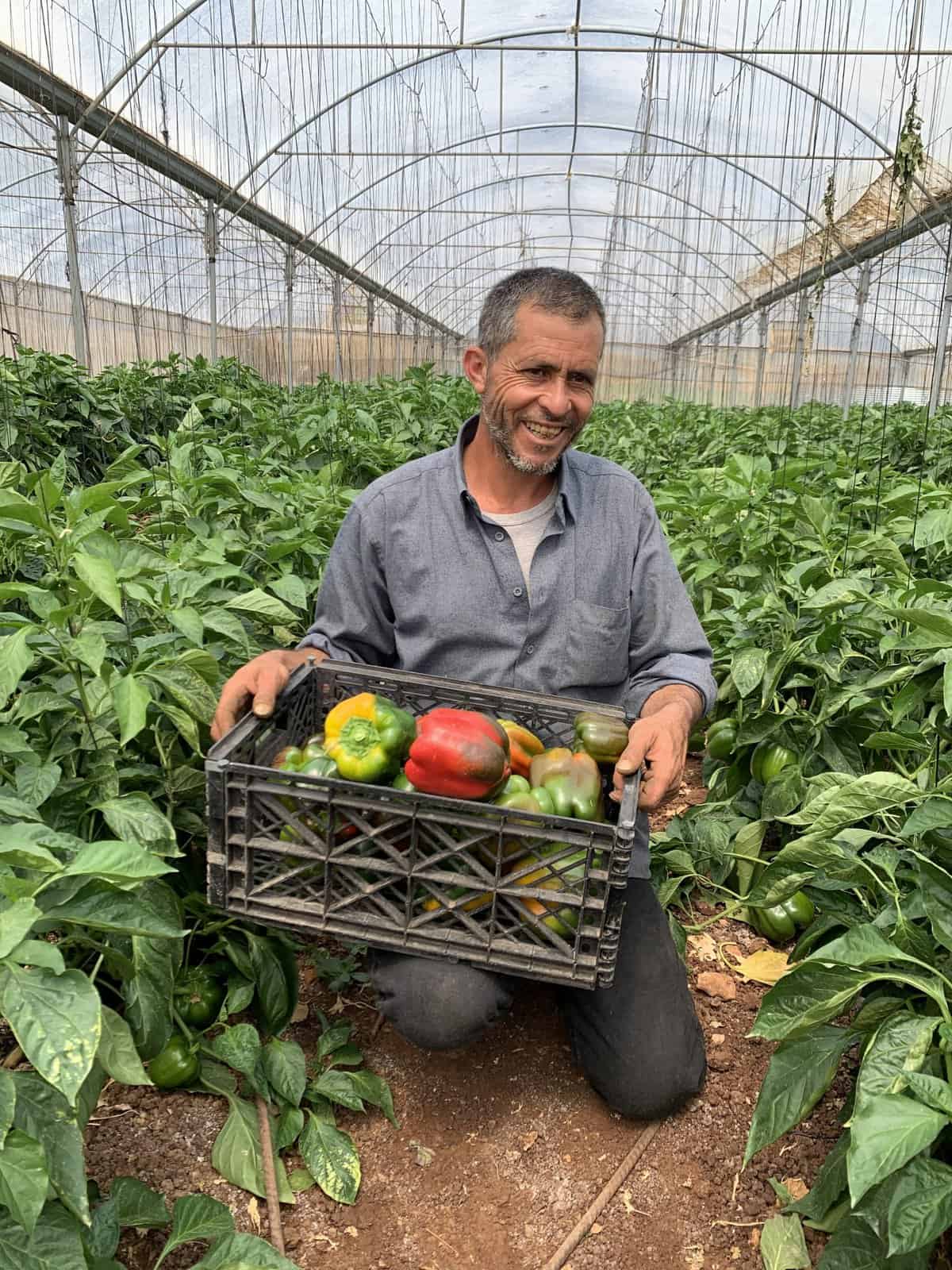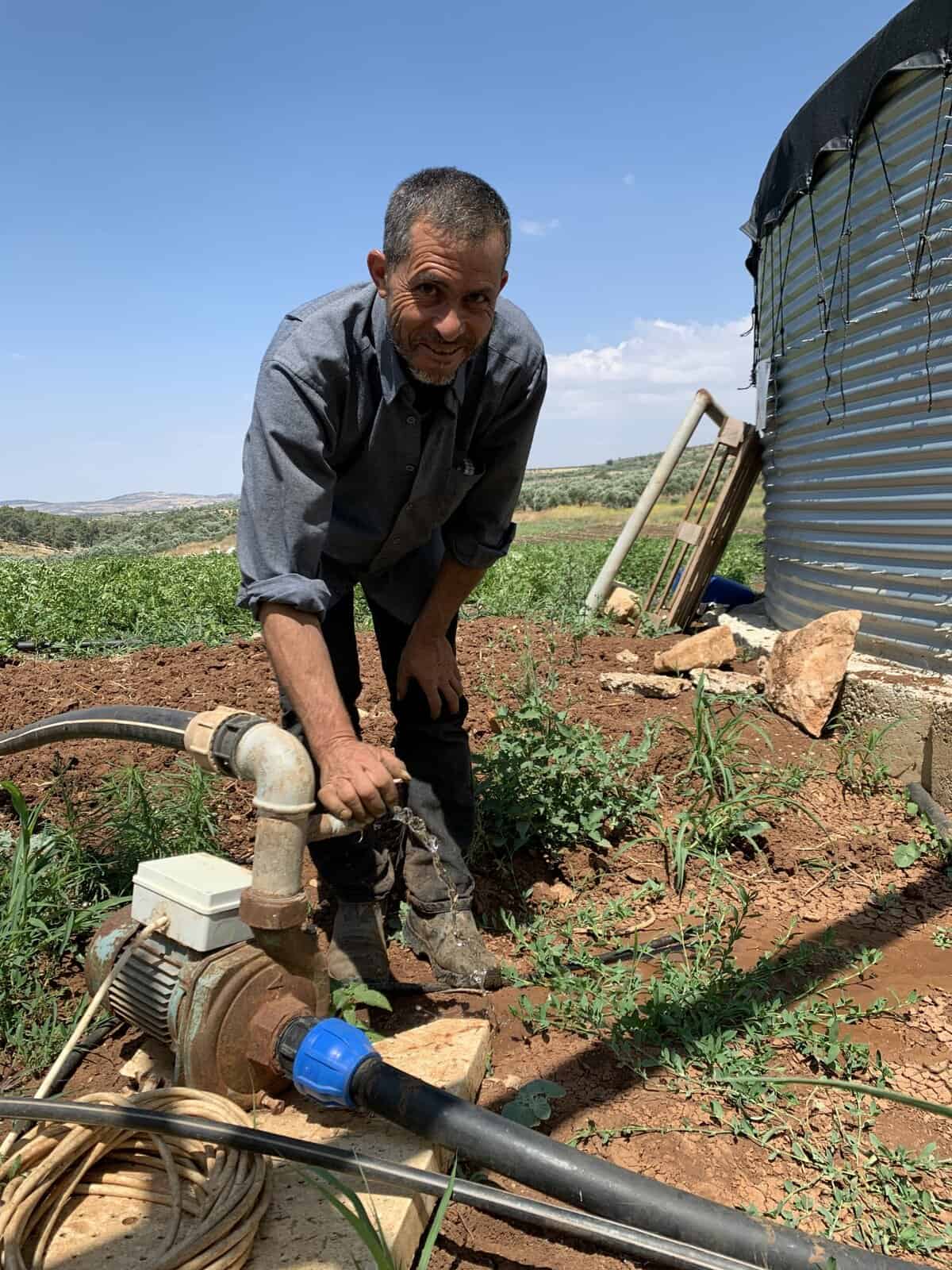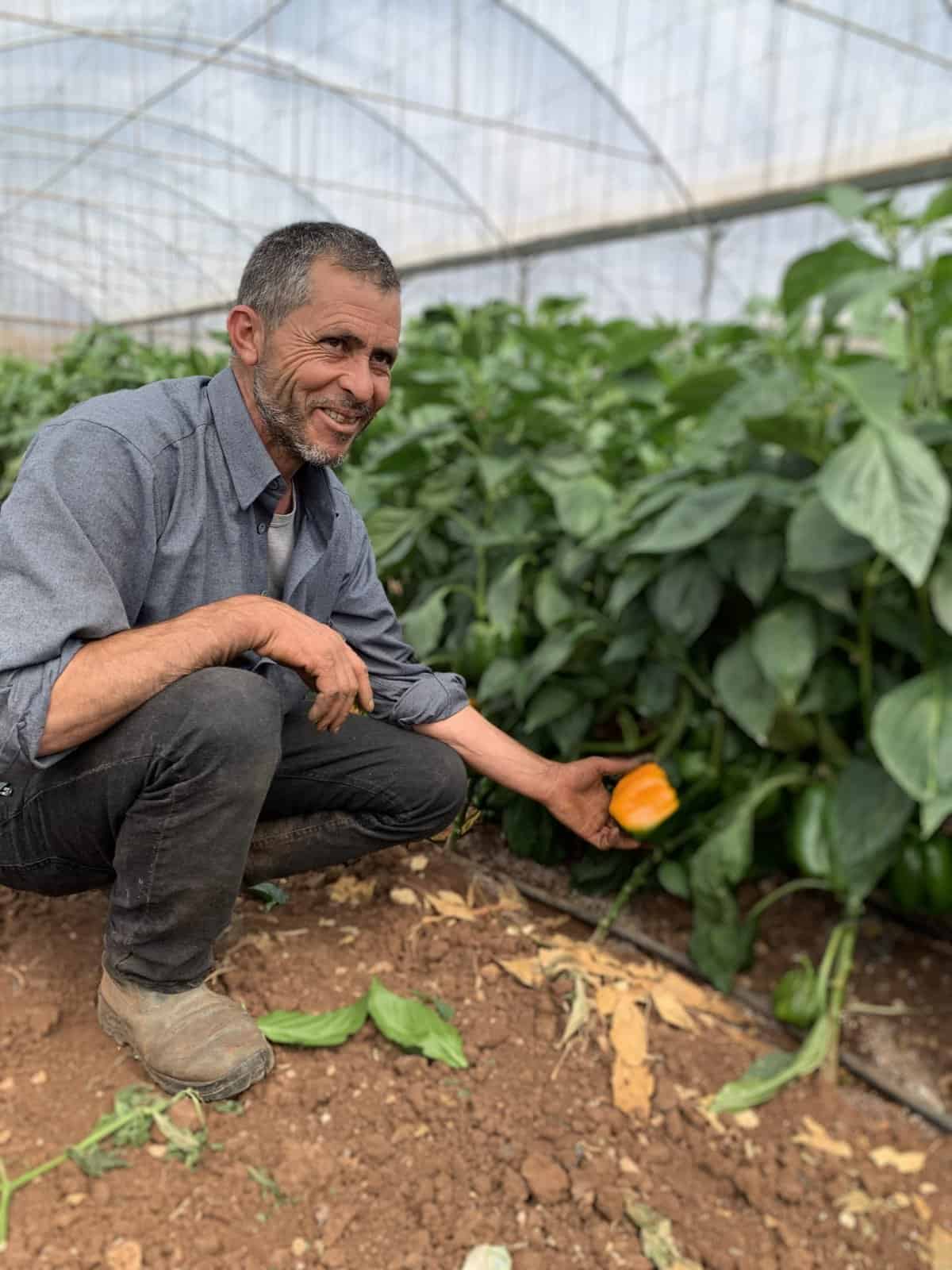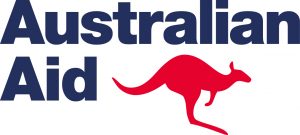Mohammed Finds Path to Resilience through Agriculture in the West Bank
Mohammed is a farmer and father of two from Qabatiya, in the West Bank. As a participant in Union Aid Abroad – APHEDA’s project to strengthen the resilience of Palestinian farming communities, Mohammed is a building a secure livelihood for his family and parents.
One of his biggest challenges has been to find a reliable and affordable source of water to irrigate his crops. In the past, Mohammed paid 5 shekels ($2 AUD) per cubic meter to access the water network, but sometimes in summer it would be cut off and he would have to pay 25 shekels ($10 AUD) to bring in water by other means. This limited the type of crops he could grow, and often resulted in him over-watering as he was concerned the water could be cut off.
Now, thanks to a steel water tank installed as part of the Ghalleh Project, Mohammed can irrigate his crops at the right time without wasting water. The water tank provides Mohammed with around 300 cubic meters of water which he harvests during the winter. He has saved around 1,500 shekels ($605 AUD) on water and has improved his water management.
Union Aid Abroad – APHEDA implements the Ghalleh Project in partnership with MA’AN Development Centre, Institute for Community Partnerships – Bethlehem University, and Palestinian Businesswomen’s Association – ASALA.
The water tank is the backbone of our agricultural project. Now I can plant new varieties of vegetables that have better markets, and I have doubled the area of my greenhouse to four acres instead of two.
Mohammed was one of thirty-seven farmers who in 2019 were supported to build steel water tanks through cost-sharing. This was part of a larger water management intervention where Union Aid Abroad – APHEDA supported 3,054 Palestinian farmers to improve their water management systems
After the water tank was constructed, Mohammed planted his greenhouse with a new vegetable variety (peas) which he could not grow in the past. At the end of the harvesting season, he had produced 4,000kg of peas and sold all in nearby markets for a total of 16,000 shekels ($6,450 AUD).
I always wanted to grow new varieties of irrigated and income-generating vegetables. Now the water tank has been constructed, I can finally grow new varieties, such as peas, that produce excellent yields and profits.
Mohammed was then able to use his profit to invest in a ploughing machine for his farm. Because Mohammed was able to employ more workers, now his farm supports five families.
The water tanks instill resilience in the heart of farmers to continue our agricultural work.
Mohammed hopes that other Palestinian farmers can have access to water tanks to bolster their ‘samud’ which means steadfastness in Arabic, and has come to signify Palestinian resilience.




